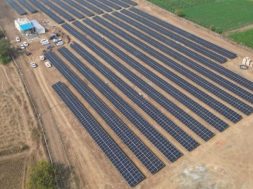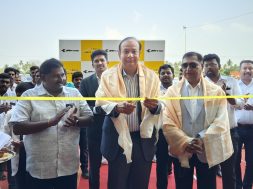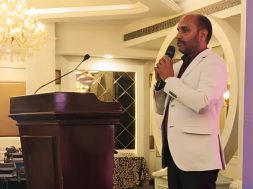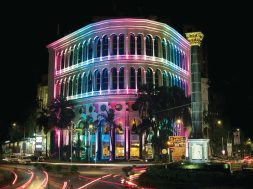Palava will incorporate IBM’s smarter cities technology to improve efficiency and deliver an enhanced quality of life for residents
Lately, smart city development in India has received a lot of attention, mainly after the concept has found place in the new government’s electoral manifesto. After assuming the charge, the Prime Minister Narendra Modi said he plans building 100 new cities enabled with the latest in technology and infrastructure. Several smart cities are already under development through private sector participation. And one such project is Palava.
Palava is an upcoming megacity near Mumbai, located between Kalyan, Thane and New Mumbai. It is approved by Government of Maharashtra as MegaCity and being developed by Lodha Group. Recently, Lodha Group has joined hands with technology and consulting firm IBM to develop and manage smart city infrastructure. Palava will incorporate IBM’s smarter cities technology using advanced, data driven systems to integrate information from all city operations into a single system to improve efficiency and deliver an enhanced quality of life for residents.
According to Shaishav Dharia, Development Director, Palava, Lodha Group, “Palava is a smart city in every sense of the term. The city has been planned from the ground up incorporating the most advanced designs and technology to ensure the highest standards of quality, stability and safety.”
He further adds, “The city’s infrastructure will be embedded with sensors measuring all aspects of its performance, from power and water usage to traffic, security systems and much more, feeding into a central operations center that will be able to use this data to plan maintenance, respond rapidly to issues, improve efficiency, lower cost and increased livability for its citizens.”
Current statusThe project is spread across 4,000 acres out of which development of 250 acres which is the first phase, has been completed over the last three years. Palava is already home to many families. Lodha Palava already has operational facilities like the Lodha World School and the preschool, sports facilities, clubhouses, a cricket terrain, a FIFA standard football field plus a 9-hole golf course.
Mr Dharia says, “We are proud of the extraordinary pace of progress at Palava. The first phase of the city, spanning an area of over 250 acres and encompassing a school, a mall, shops, clubhouses, a golf course, Olympic-standard sports facilities and over 18,000 homes, is now nearing completion, with over 3,000 families already in residence. We are well on our way to fulfill our vision of becoming India’s most livable city.”
Innovative technologyTo enable Palava’s smart city development, IBM will be defining and setting up technology enabled procedures like an integrated command centre to monitor end-to-end operations of the city. In terms of physical infrastructure, it will involve building security system for citizens through smart cards and security cameras.
Michael J Dixon, General Manager, Smarter Cities Business, IBM- We are very focused on the application of technology not the technology. We are focused on big data, analytics, mobility and the opportunity for the people living in the city to use the technology. So these are all new applications of technology and they are very much in demand around the world and the delivery of these kinds of services from cloud based systems is critically important and we are certainly applying all these technologies.”
He further adds, “The integration of desperate data is very difficult and is very challenging, so when we put operation systems together they integrate very desperate data. The most innovative software and we are working on that in research labs and with people around the world who can really bring this kind of capability and offer best technology to Lodha.”
Palava will use a whole host of technologies, from facial recognition software to augment security cameras and improve safety, to smart cards to allow citizens a hassle-free system to do everything – from making cashless purchases at the neighborhood store, to secure access to facilities and amenities.
Commenting on the innovative technology Mr Dharia says, “Palava City is heavily focusing on building a strong security system for its citizens through smart cards and security cameras along with physical security measures. To begin with, the scope of IBM’s involvement in Palava will be in public safety arena. IBM will be defining and setting up technology enabled procedures like an integrated command centre to monitor end-to-end operations of the city. In terms of physical infrastructure, it will involve building security system for citizens through smart cards and security cameras.”
Green conceptIt has become more important to make cities not only green, but also efficient. There are several cities that are focusing on specific aspects that help it run efficiently, such as on their transport, energy and waste management. Palava too is focusing on varied green and energy-efficient measures to conserve energy.
Mr Dharia states, “Palava is an example of what the future of urban India must look like, and sustainability is a key element in every aspect of its design. The city is planned with over 25 per cent of its area dedicated to green spaces, the highest proportion of any major city in the world, and ensuring a balance with the environment. The city will recycle all the water it uses, using recycled water for the upkeep of green spaces, and uses low-carbon or no-carbon technologies like CFL lighting, solar panels, and CNG-based transportation.”
These energy saving steps will ensure the smallest possible environmental footprint, and a great environment to live in.
Mr Dixon believes, “Green sustainability is very important; ultimately people want to have a very low environmental impact where they live. However it’s not enough to say I want to be sustainable or I want to be green, you need to do that. The specific thing is how you manage water, wastes and limit emissions in the environment. These things are very practical specific things which are taken in this part of the project plan.”ChallengesTo develop smart cities in India, there will be umpteen numbers of challenges which needs to be addressed. Palava is a one-of-a-kind project which has its own share of challenges. With suitable solutions and strategies one can effectively overcome them.
Commenting on the challenges Mr Dharia says, “Palava is a unique project in the fact that it is a city – building a new city from the ground up as one organic entity has never been attempted before in India, and only a very few times in the world. Palava is the largest private development of its kind in the world, and doing anything for the first time on this scale has its challenges – but with the best team, partners and technology, we are headed in the right direction.”
According to Mr Dixon, “I think the challenges are more around communication the team and skills. I think in all of these the opportunity is to bring the tactics and strategies together under one vision. I think that’s where you look for challenges, if you get this right and you communicate well then our specialist can deliver the technology however one needs.”
Palava will be home to over 100,000 families by 2025, and with it have created over 100,000 jobs. That said, Palava will be a learning city, constantly evolving with its citizens – in that sense it will always be a living, growing entity.
With such projects the potential for smart cities in India looks enormous, which may make Prime Minister Narendra Modi’s 100 smart cities goal an achievable one.
37
Cookie Consent
We use cookies to personalize your experience. By continuing to visit this website you agree to our Terms & Conditions, Privacy Policy and Cookie Policy.









